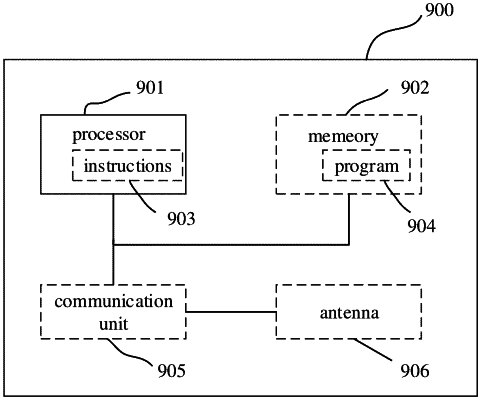| CPC H04W 72/23 (2023.01) [H04L 5/0035 (2013.01)] | 12 Claims |

|
6. A terminal device, comprising one or more processors, and memory storing a plurality of programs that, when executed by the one or more processors, cause the terminal device to:
receive a time domain resource allocation list for at least one Physical Downlink Shared Channel (PDSCH) transmission by higher layer signaling, wherein at least one time domain resource allocation in the time domain resource allocation list comprises a Ultra-Reliable Low-Latency Communication (URLLC) repetition number; and
receive at least one PDSCH according to the time domain resource allocation list, wherein a PDSCH aggregation factor is not used;
wherein when the plurality of programs are executed by the one or more processors, the terminal device is caused to:
determine a second time domain resource allocation from the time domain resource allocation list according to a Time Domain Resource Allocation (TDRA) field in DCI for scheduling the at least one PDSCH, and receive the at least one PDSCH according to the second time domain resource allocation;
wherein when the plurality of programs are executed by the one or more processors, the terminal device is caused to:
when none of time domain resource allocations in the time domain resource allocation list comprises the URLLC repetition number, determine a Physical Downlink Shared Channel (PDSCH) aggregation factor and a first time domain resource allocation, wherein the first time domain resource allocation is a time domain resource allocation list configured by higher layer signaling;
wherein when the plurality of programs are executed by the one or more processors, the terminal device is caused to:
when none of time domain resource allocations in the time domain resource allocation list comprises the URLLC repetition number, receive the at least one PDSCH in M consecutive slots according to the PDSCH aggregation factor M, wherein M is the PDSCH aggregation factor, and M is an integer greater than 1.
|